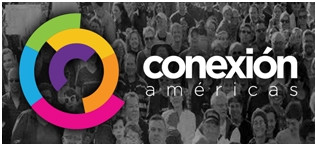Last year Conexion Americas, a multi-million dollar funded Latino advocacy organization headquartered in Nashville, convened the Tennessee Educational Equity Coalition (TEEC), which it now leads. Partnering with the George Soros funded Migration Policy Institute, TEEC launched the “TN English Learner Network.”
TEEC does not appear to be a separate corporate entity, but rather merely a “project” of Conexion Americas, according to the most recent Conexion Americas annual report.
Renata Soto, founder and director of Conexion Americas, was elected in 2015 to lead the National Council of La Raza’s (La Raza) board. George Soros has generously funded La Raza over the years in amounts typically exceeding $2 million.
 Gubernatorial candidate Randy Boyd is a mega donor to Conexion Americas, which received $250,000 from Randy and Jenny Boyd in 2016, and his education non-profit Complete Tennessee, which works in a reciprocal relationship with Soto and the TEEC. Soto serves on his board and his organization serves as a State Partner to TEEC. Both Complete Tennessee and the TEEC say they want to address “equity gaps” in the education provided to Tennessee students.
Gubernatorial candidate Randy Boyd is a mega donor to Conexion Americas, which received $250,000 from Randy and Jenny Boyd in 2016, and his education non-profit Complete Tennessee, which works in a reciprocal relationship with Soto and the TEEC. Soto serves on his board and his organization serves as a State Partner to TEEC. Both Complete Tennessee and the TEEC say they want to address “equity gaps” in the education provided to Tennessee students.
 Both Soto and Boyd are tied to organizations that support “tuition equity,” which is the legislative reference to a bill that would grant the in-state tuition benefit to illegal alien students. But “equity” whether related to college tuition or education services received in the K-12 years, does not come without a cost to state taxpayers.
Both Soto and Boyd are tied to organizations that support “tuition equity,” which is the legislative reference to a bill that would grant the in-state tuition benefit to illegal alien students. But “equity” whether related to college tuition or education services received in the K-12 years, does not come without a cost to state taxpayers.
TEEC’s English Learner initiative is working to organize in different parts of the state to expand advocacy for more resources. That would include, for example, more funding for English Language Learner services (ELL) in schools. With the help of the Migration Policy Institute, they will provide data like the FAQ posted on the TEEC website that will be used most likely for lobbying, news stories and public campaigns.
ELL services in Tennessee’s public schools are funded through the state’s education funding formula called the BEP (Basic Education Program) and comes primarily from state and local revenue meaning that every Tennessee taxpayer shares in the cost regardless of which county’s schools are providing the services. State education funding provides 70 percent of the expenditure leaving the local share at 30 percent.
In fiscal year 2012, total funding for ELL services was $70 million with the state share at $49 million and the local share at $21 million. The most recent fiscal year’s total funding has grown to $122.3 million with the state share t $88.4 million and the local share at $33.9 million.
The fact sheet shows for example that:
- 56,528 ELLs are enrolled in Tennessee public schools and that
- 65% of ELLs in the K-12 grades were born in the U.S.
- the largest enrollment of ELLs are in Davidson, Shelby, Knox, Rutherford, Hamilton and Hamblen counties
According to 2012 data from the U.S. Department of Education’s Office of English Language Acquisition, of the 57 percent of adolescent U.S. born ELLs, 37 percent were second-generation and 32 percent were third-generation.
The New American Economy which Boyd belongs to, issued a Tennessee specific report which put the Tennessee illegal alien population, or as they refer to them, “the undocumented” at 128,620 people. Other data sources put the illegal alien population in Davidson County at 33,000 of which over 25,000 are students in Nashville public schools.
Between fiscal year 2014 and 2017, over 4,000 Unaccompanied Alien Children (UAC) were sent to Tennessee, of which 1,300 went to Davidson County. UACs are under age 18, have no lawful immigration status in the U.S., have no parent or legal guardian in the U.S., or there is no parent or legal guardian in the U.S available to provide care and physical custody.
Added to the number of illegal entrants, are legal immigrants who settle in Tennessee and cities like Nashville through visa programs and refugee resettlement.
It is estimated that over 12,000 students in Metro Nashville Public Schools receive ELL services. According to the Education Action Group, “the majority of Nashville students learning English speak Spanish at home, and Arabic speakers comprise the second largest group.”
In September 2016, Metro Nashville Public Schools’ suit against the state for more ELL funding was denied in court. At the same time, Metro schools began offering Arabic language instruction at six schools, including Antioch High School which has the highest concentration of Arabic speakers. The district’s chief academic officer at the time justified the decision, saying, “[w]e believe it will help them be more engaged in school as a whole and also help them stay connected to their native culture.”
The federal “Every Student Succeeds Act” signed by Obama in 2015 includes new requirements for ELL services which are likely to continue to increase the cost to state taxpayers.






[…] sheet posted by the TN Educational Equity Coalition (TEEC) which has an interlocking relationship with Randy Boyd’s education non-profit Complete Tennessee provides its own figures on ELL students in Tennessee […]
As the Executive Director of The 917 Society, it amazes me that we struggle to get funding to provide a free program to celebrate Constitution Day and American Citizenship, yet these groups are handed six figure donations when one of those donations could fund us for the year. I am thankful to The Tennessee Star for supporting us and sharing our banner on their website and we will be sharing theirs and their work to educate our youth about our Constitution with their Constitution Series. If you want to support a project that promotes American Citizenship and our Constitution for our youth then go to 917society,com and join us and help us provide a Constitution Day program in our classrooms for September 17th this year. At a crucial time when our youth are forming their own identity, we want part of that identity to include being a proud American Citizen! The time is NOW to make a difference or we will lose what WE the people hold so dear.
Those needing to learn English in order to participate in the public classroom should be required pay to learn English in a private setting – not at the expense of taxpayers.